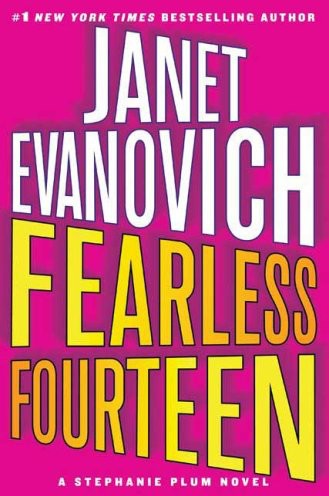
Fearless Fourteen PDF
Preview Fearless Fourteen
Starred Review. Lorelei King returns to Trenton, N.J., to continue the misadventures of Stephanie Plum, intermittently successful bounty hunter. King is one of many to voice Janet Evanovich's successful series, but her voice can be heard above the crowd, especially when she's bringing the more colorful characters to life. Her former prostitute Lula can tear down walls with the force of her personality, and King gives professional security specialist (read mercenary) Ranger the measured tones of one who is always in control. Stephanie spends much of the book blue from a briefcase dye bomb. King's Plum accepts her blueness and responds to the reactions with indignity, ruefulness and eventually resignation. In addition to established favorites, Evanovich has thrown into the mix a 60-ish singer trying to hang onto fame who gives King plenty of scope for her Southern side. Fearless Fourteen becomes peerless fourteen with narrator King at the helm. A St. Martin's hardcover (Reviews, May 19). (June)
Copyright © Reed Business Information, a division of Reed Elsevier Inc. All rights reserved.
Our heroine, the irrepressible bounty hunter Stephanie Plum, finds herself watching over a goth teen called Zook, who is heavily into gaming, after his mom can’t make bail and disappears (or has been kidnapped). A lot of people think there is stolen money buried in or near Officer Morelli’s little house—that’s Steph’s Morelli, the cop who is her number-one boyfriend most of the time, or at least when the entrancing Ranger isn’t nearby. The money is the reason behind Zook’s mom’s disappearance, and it’s the tie that binds Evanovich’s various plotlines, which carom about endlessly, not always resolving. Questions abound: Are Steph’s sidekick, the plus-size Lula, and Ranger’s man Tank really engaged? Ranger is working security for a fading but brassy pop star: How does Steph manage to get into and out of her reality show? Can Zook and his sidekicks protect Morelli’s house—and Stephanie—with their homegrown weaponry (think potatoes as missiles)? Where else but Evanovich’s fourteenth novel can a line like “it’s raining money and popsicles!” actually make sense? Fans will be delighted, but others, who stumble into the series at this advanced point, may find themselves starved for backstory, so much so that they may need to go all the way back to One for the Money (1994). --GraceAnne A. DeCandido
